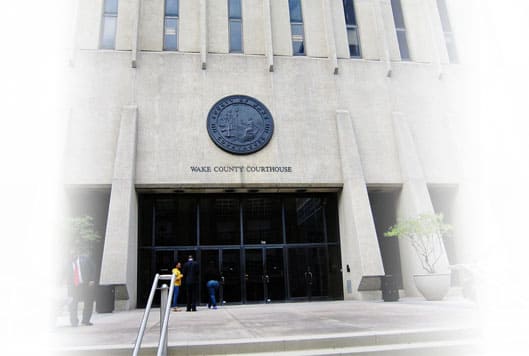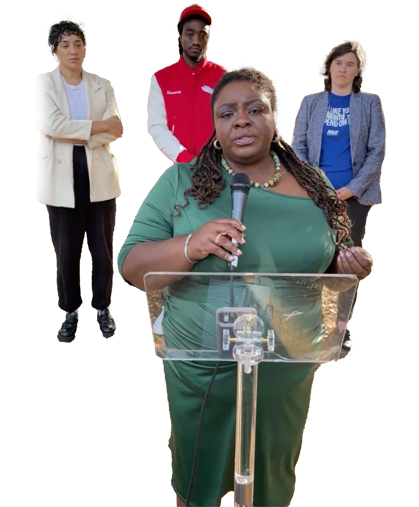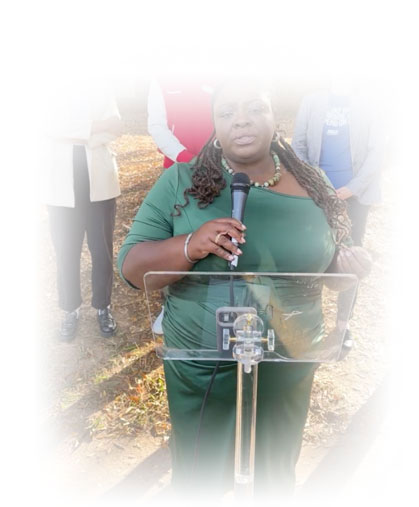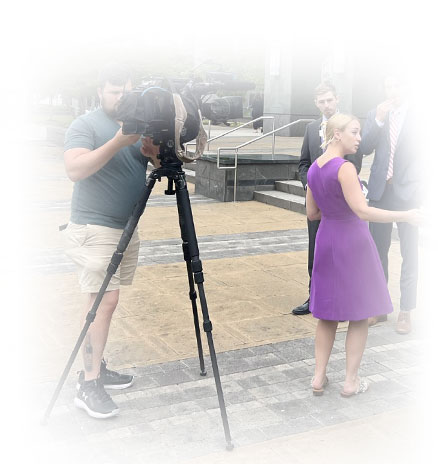The Emancipated CLE: 2025
The Emancipated CLE
Sponsored by Emancipate NC
1805 Chapel Hill Road Durham, NC 27707
February 7, 2025
10 am - 4.30 pm

This Continuing Legal Education seminar is targeted to lawyers, law students, and advocates working in a movement law space.
It offers 5.0 hours of credit
including 1.0 hour of Ethics credit.
It is approved by the North
Carolina State Bar.

Lunch is included and registration is a sliding scale from $25 – $250.
Landing form
Identifying and Using Arresting Officer Stop and Search Data to Support Selective Enforcement (Racial Profiling) Claims in Motions to Suppress and Other Contexts


This session will describe how attorneys can locate a North Carolina police officer’s career stop and search data, including the racial demographics of those they have stopped and searched, and regardless of whether their county uses eCourts/Odyssey or ACIS to maintain criminal records. Ian will describe how police data, when it reveals patterns of racially-disparate policing, has been introduced successfully by defense attorneys in motions to suppress, plea bargaining, and in sentencing proceedings to improve client outcomes.
Taught by Ian Mance, Abul Azam, and Jared Smith
Fighting Back in the Struggle for Policing Transparency: How to Obtain the Release of Police Reports, Body Camera Footage, and Other Police Records


To successfully hold police accountable and further the narrative that police do not keep us safe, policing has to be transparent to the public. This workshop examines the unique difficulties in North Carolina law that present challenges for attorneys, activists, and media in trying to obtain public release of law enforcement agency recordings and other police records. It will walk through the history of changes to North Carolina’s laws on law enforcement agency recordings and the purpose behind those changes. This workshop will also discuss successful and unsuccessful argument examples when trying to obtain public release of law enforcement footage.
Taught by Jaelyn Miller and Dillon Sharpe
Using Media as a Strategy for Legal Advocacy Part 1


This two-part workshop will analyze the power that news and media hold to impact the course and outcomes in both civil and criminal justice-related litigation. Featuring attorney, advocate, and directly impacted client perspectives, panelists will interrogate how criminal defense and civil rights attorneys can deploy media strategy to assist in popular education, apply public pressure that influences decision-makers positively, and empower the attorney-client relationship. The discussion will feature both risks and advantages of incorporating media into legal strategy, and how to navigate tensions that may arise. In Part I of the panel, speakers will focus on narrative shifting and rhetorical strategies.
Taught by Dawn Blagrove, Kerwin Pittman, and Dedan Waciuri
Using Media as a Strategy for Legal Advocacy Part 2 (Ethics Credit)


This two-part workshop will analyze the power that news and media hold to impact the course and outcomes in both civil and criminal justice-related litigation. Featuring attorney, advocate, and directly impacted client perspectives, panelists will interrogate how criminal defense and civil rights attorneys can deploy media strategy to assist in popular education, apply public pressure that influences decision-makers positively, and empower the attorney-client relationship. The discussion will feature both risks and advantages of incorporating media into legal strategy, and how to navigate tensions that may arise. In Part II of the panel, speakers will focus on compliance with the Ethical Rules on trial publicity and confidentiality.
Taught by Elizabeth Simpson and Toia Potts
Navigating Constitutional Crossroads: Intersecting the 4th Amendment, 5th Amendment, and Miranda Jurisprudence in CPS Investigatory Practices

This workshop examines the constitutional challenges related to the investigatory practices of Child Protective Services (CPS), focusing on the 4th and 5th Amendment rights in cases of abuse, neglect, and dependency. We will analyze the changing legal landscape regarding Miranda warnings, custodial interrogations, and the role of agency workers as “agents of the State.” Additionally, we will discuss how these issues affect individuals’ rights and the broader implications for constitutional protections in child protection cases. Our goal is to foster a deeper understanding of the challenges faced by parents who are interrogated by agency representatives, while also considering the wider implications for constitutional rights that do not specifically apply to “child welfare” cases.